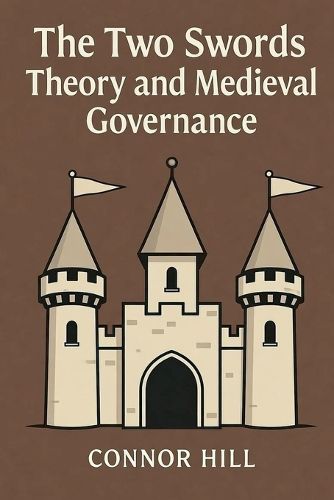Readings Newsletter
Become a Readings Member to make your shopping experience even easier.
Sign in or sign up for free!
You’re not far away from qualifying for FREE standard shipping within Australia
You’ve qualified for FREE standard shipping within Australia
The cart is loading…






For nearly a millennium, medieval Europe grappled with a fundamental question that still resonates today: how should religious and political authority relate to each other in a functioning society? From Pope Gelasius's revolutionary declaration in 494 CE that "two powers" govern this world through the dramatic confrontation at Canossa where an emperor stood barefoot in the snow before a pope, to Dante's radical reimagining of governance on the eve of modernity, the struggle to define the proper boundaries between spiritual and temporal authority shaped European history in profound ways.
"The Two Swords and Medieval Governance" takes readers on a captivating journey through the intellectual battles, personal confrontations, and institutional innovations that defined medieval politics. Drawing on rich primary sources-from papal pronouncements and imperial decrees to the writings of brilliant thinkers like Thomas Aquinas and Christine de Pizan-this book reveals medieval governance as neither the theocratic monolith nor the chaotic feudal patchwork often depicted in popular culture, but rather a sophisticated system wrestling with perennial questions about the proper limits of power.
Readers will discover how the crusades created unprecedented cooperation between religious and royal authorities, how universities fostered revolutionary political theories, and how Italian city-republics developed alternatives to monarchical rule even while negotiating relationships with the papacy. From the courts of Charlemagne to the chanceries of late medieval kingdoms, from monastic scriptoria to battlefields where popes and emperors contested supremacy, this book illuminates the complex dance between spiritual and temporal governance that shaped Western political thought for centuries to come.
At a time when questions about the relationship between religious values and political authority continue to spark debate worldwide, "The Two Swords and Medieval Governance" offers valuable perspective on how an earlier civilization navigated similar challenges. Both scholarly and accessible, this book will appeal to anyone interested in the medieval world, the history of political thought, church-state relations, or the deep historical roots of modern governance challenges. Discover how the medieval synthesis balanced competing authorities in ways that still influence our understanding of legitimate power today.
$9.00 standard shipping within Australia
FREE standard shipping within Australia for orders over $100.00
Express & International shipping calculated at checkout
Stock availability can be subject to change without notice. We recommend calling the shop or contacting our online team to check availability of low stock items. Please see our Shopping Online page for more details.
For nearly a millennium, medieval Europe grappled with a fundamental question that still resonates today: how should religious and political authority relate to each other in a functioning society? From Pope Gelasius's revolutionary declaration in 494 CE that "two powers" govern this world through the dramatic confrontation at Canossa where an emperor stood barefoot in the snow before a pope, to Dante's radical reimagining of governance on the eve of modernity, the struggle to define the proper boundaries between spiritual and temporal authority shaped European history in profound ways.
"The Two Swords and Medieval Governance" takes readers on a captivating journey through the intellectual battles, personal confrontations, and institutional innovations that defined medieval politics. Drawing on rich primary sources-from papal pronouncements and imperial decrees to the writings of brilliant thinkers like Thomas Aquinas and Christine de Pizan-this book reveals medieval governance as neither the theocratic monolith nor the chaotic feudal patchwork often depicted in popular culture, but rather a sophisticated system wrestling with perennial questions about the proper limits of power.
Readers will discover how the crusades created unprecedented cooperation between religious and royal authorities, how universities fostered revolutionary political theories, and how Italian city-republics developed alternatives to monarchical rule even while negotiating relationships with the papacy. From the courts of Charlemagne to the chanceries of late medieval kingdoms, from monastic scriptoria to battlefields where popes and emperors contested supremacy, this book illuminates the complex dance between spiritual and temporal governance that shaped Western political thought for centuries to come.
At a time when questions about the relationship between religious values and political authority continue to spark debate worldwide, "The Two Swords and Medieval Governance" offers valuable perspective on how an earlier civilization navigated similar challenges. Both scholarly and accessible, this book will appeal to anyone interested in the medieval world, the history of political thought, church-state relations, or the deep historical roots of modern governance challenges. Discover how the medieval synthesis balanced competing authorities in ways that still influence our understanding of legitimate power today.